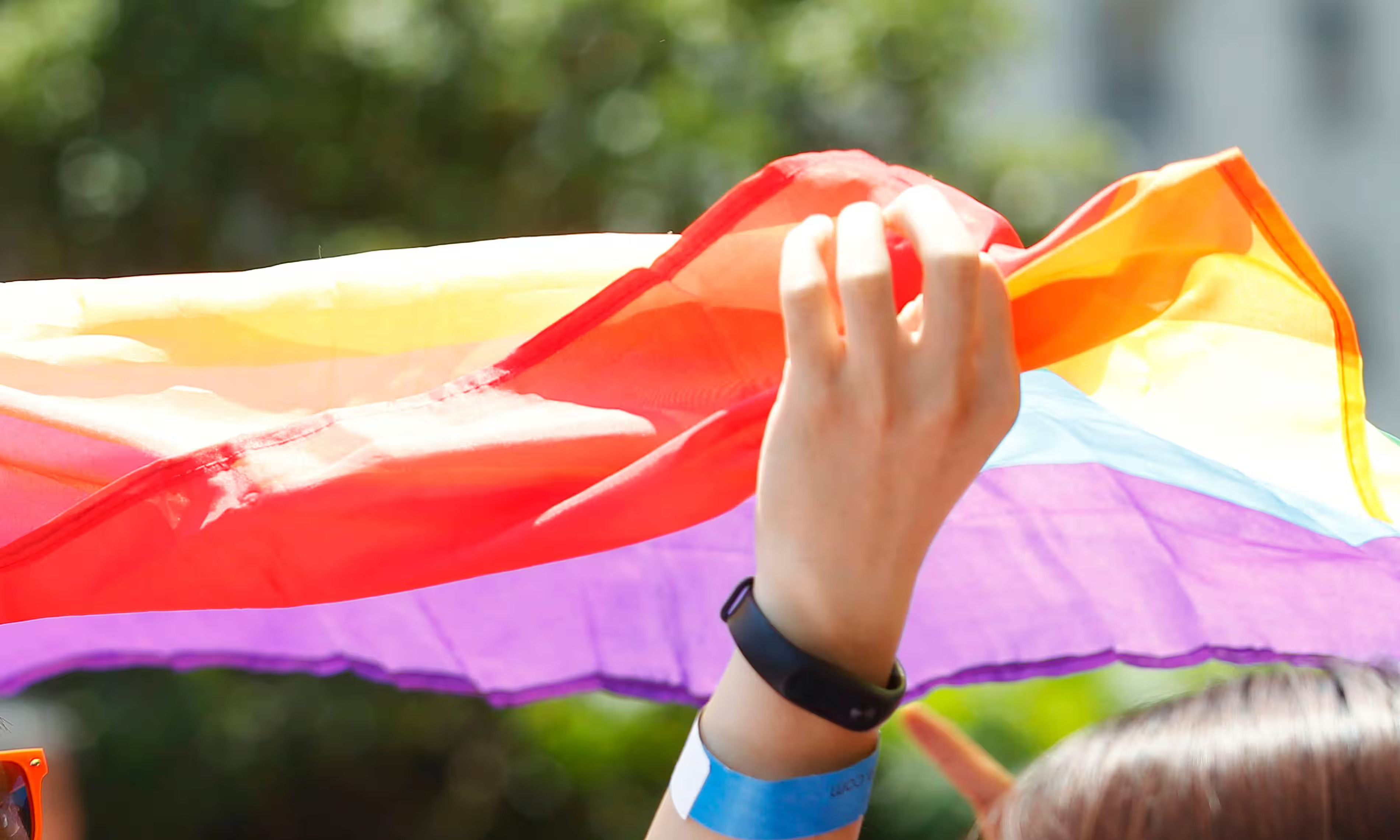Last week, two days before the International Day Against Homophobia, the Beijing LGBT Center announced it would be closing its doors.
In a WeChat post, the organization said the closure was due to unidentified “factors beyond its control.”
“Thank you for following and supporting us over the years,” the statement reads. “Hope we’ll see each other again with pride.”
Beijing LGBT+ Center is absolutely pivotal to queer advocacy and social welfare in China and it was basically the last major, long-running organisation standing after waves of crackdowns smashed everything else.
— Jinghua Qian (@qianjinghua) May 15, 2023
Founded in 2008, the Center was one of China’s largest and longest-standing LGBTQ organizations, supporting the queer community with emotional, medical, and legal resources.
The news of its closure came as a shock to many, given that the organization had just celebrated its 15th anniversary and released its 2022 annual report. The opening message of the report took an optimistic tone:
“In the days of uncertainty, we should not be afraid of the dissipation of enthusiasm; enthusiasm will not die, as long as there is faith, enthusiasm will definitely return to our lives again. May we all have the faith and courage to find our will to act and rekindle our passion for life.”
The Beijing LGBT Center achieved several milestones over its years of operation. In 2014, the Center successfully helped a man win a case against a clinic that treated him with electroshock therapy. A Beijing court eventually ruled that conversion therapy to ‘cure’ gay people was false advertising, and declared it illegal (although conversion therapy still occurs in some clinics across the country).
The Center has also been a leading voice in shaping awareness and understanding around the transgender community, publishing medical care manuals and national research reports — in 2022 alone, more than 18,000 people called in via the Center’s transgender hotline.
Many suspect a government crackdown is behind the abrupt closure. A queer activist told Germany’s international broadcaster Deutsche Welle that the public space for such organizations to operate has become limited.
“[This] is definitely about the government forcing them to stop operating,” they said. “I’m not surprised about their decision.”

In recent years, LGBTQ+ groups and events have found themselves in difficult circumstances. In August 2020, mainland China’s oldest and biggest Pride celebration ShanghaiPRIDE announced an indefinite hiatus due to “safety concerns.” One year later, on the evening of July 6, 2021, over 20 WeChat accounts run by LGBTQ+ university student groups were shut down without clear reasons.
However, other factors also played a role in the Beijing LGBT Center’s closure. A previous employee at the Center, who left the NGO last year, told RADII that the issue was not just from the top.
“There were so many problems coming from different parties, including governmental authorities, the community, and even within the team,” she says. “It was exhausting.”
On social media platform Weibo, the Center’s followers expressed frustration and sadness, as well as hope.
“[The LGBTQ community] should not feel ashamed,” one commented. “Ignorance is shameful.”
“Even though I heard that [the Center] was closing down, and even though I’ve become used to seeing organizations shut down over these past few years, it really feels like a mountain outside my home has fallen down,” writes another. “I don’t know what to say about this empty space.”
“We will remember you, we will remember the change you’ve made for us,” reads the top comment under the Center’s Weibo post. “Thanks for being there and hope to see you again if possible.”
Images via Matia Rengel, Beijing LGBT Center


















